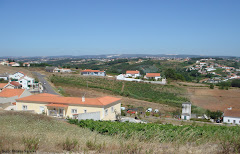 5th CIRIEC International Research Conference on Social Economy
5th CIRIEC International Research Conference on Social EconomyQuando:
15 a 18 de Julho de 2015
Onde:
Lisboa
Quem organiza:
Centro de Estudos de Economia Pública e Social (CEEPS) - Ciriec Portugal
Globalization and particularly the financialization that characterizes the last decades have produced uneven and arguably illusory gains, given evidence of the increasingly precarious position of labor and livelihoods while contributed to the widespread distribution of environmental harm and ecological degradation. These circumstances point to some general patterns and trends that notwithstanding can vary greatly across urban and rural contexts, countries and continents. That is, while many can judge globalization / financialization as something negative others will tend to highlight the opportunities and challenges derived from it. Rigorous analysis of the interconnected challenges, as well as comprehensive assessment of the proposed solutions and diverse experiments now underway will increase our understanding of the pathways involving what is considered as Social Economy. It will be particularly welcome the description and analysis of success and unsuccessful stories concerning the attempts to adjust to globalization / financialization.
Social scientists play indispensable roles in identifying, analyzing and assessing the forms and consequences — both intended and unintended — of the diverse transition aspirations and experiences of the most diverse entities covered by the idea of “Social Economy” or, to bridge Europe and Latin America, “Economia Social e Solidária”
The 5th CIRIEC International Research Conference on Social Economy encourages interdisciplinary dialogue, exchange and collaboration in order to enhance the contributions and applications of scientific inquiry for understanding and improving the life conditions and experiences of the less favored people.
Programa (um dos temas)
...
Urban rehabilitation and development
(convenors: N.Vallet, A. Martinho and J. Teixeira)
• How do social economy organizations (try to) influence the human and/or physical aspects of urban development ?
• In what way do these initiatives of (re)shaping - rehabilitating ? –
• urban space coincide and/or conflict with the intentions and initiatives of public actors?
• Does it concern common, complementary or opposite challenges and trends ?
• Lodgment and urban rehabilitation: what is the role of the cooperative movement?












Sem comentários:
Enviar um comentário